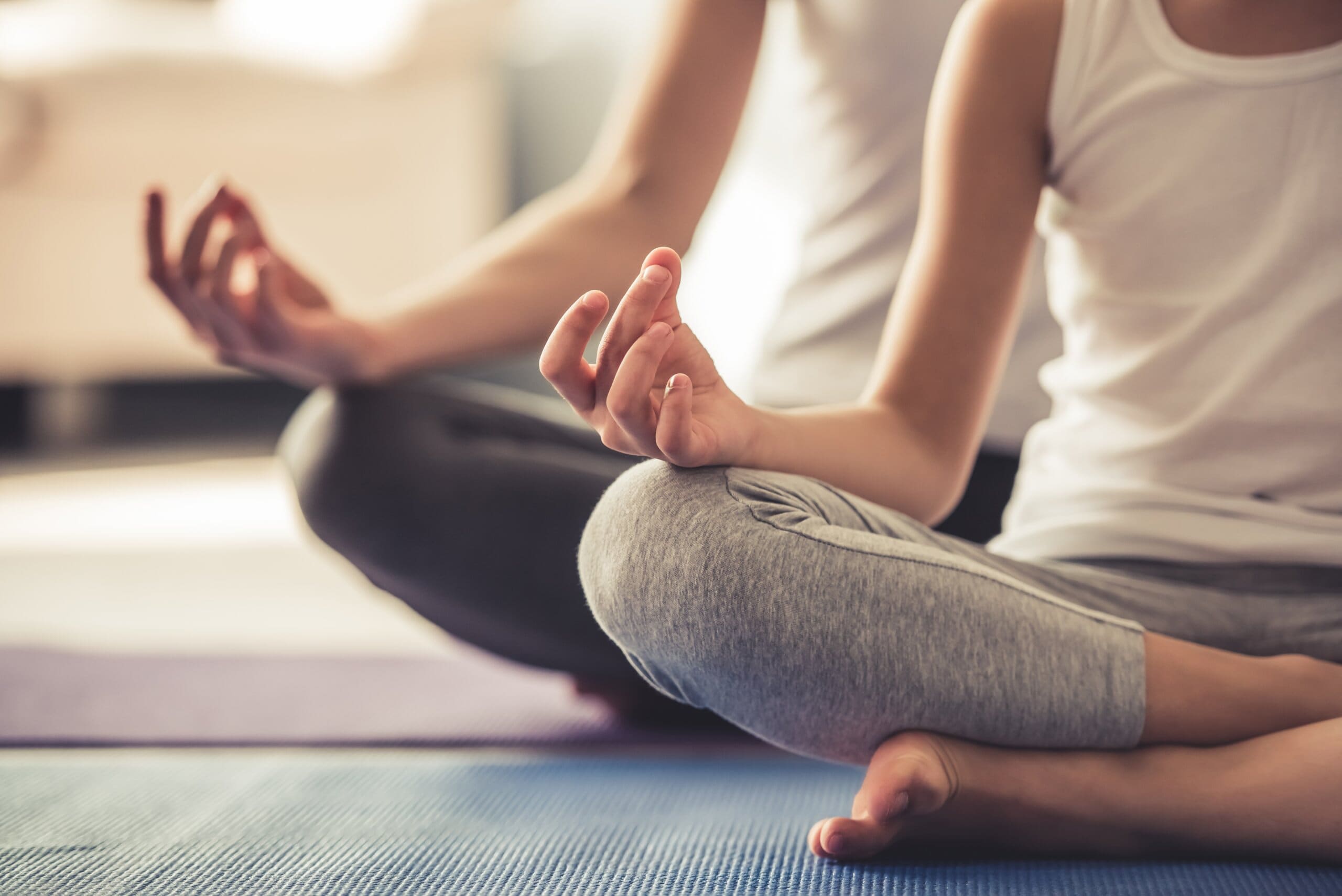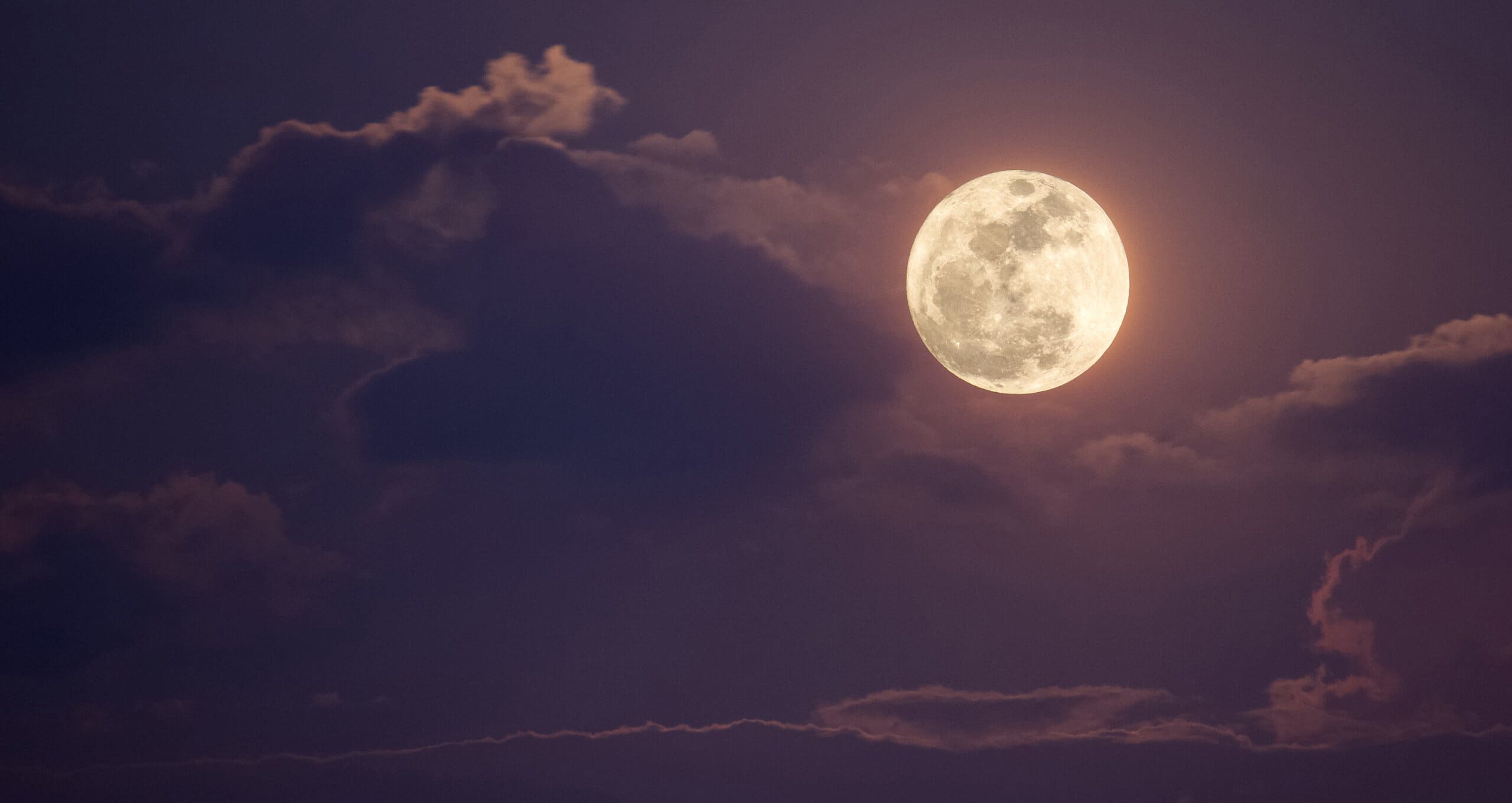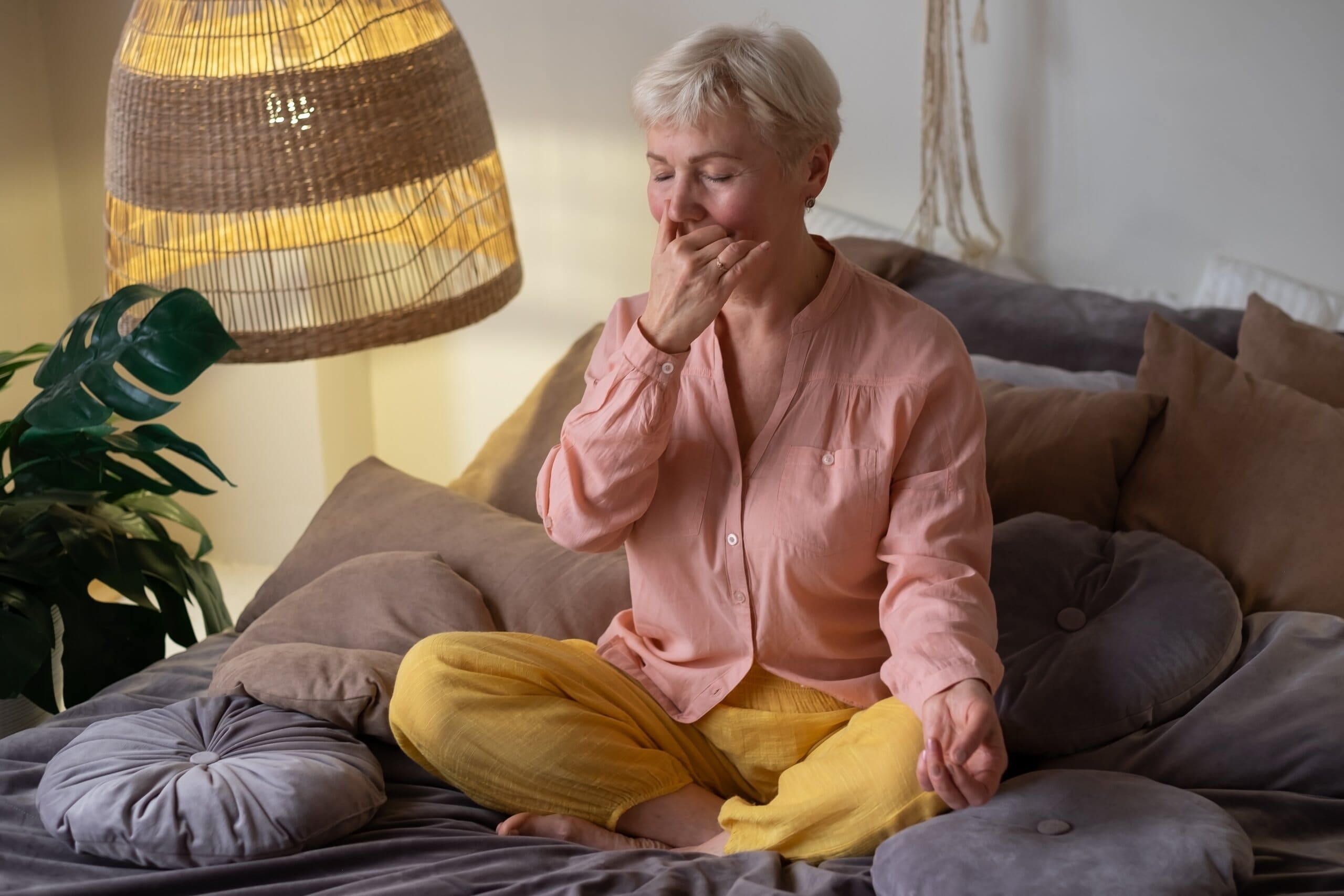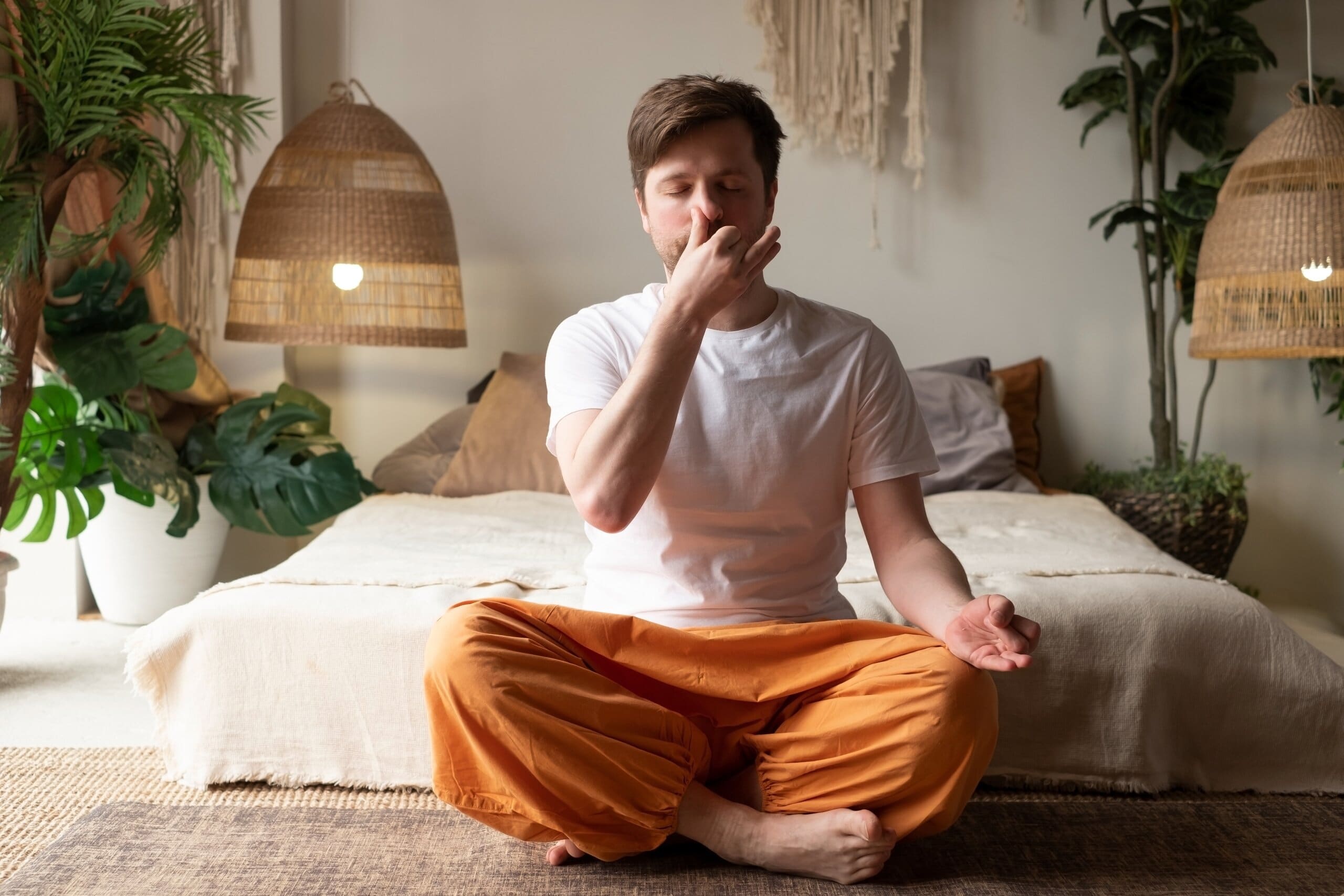Can you remember the last time you got a good night’s sleep? Around half (45%) of the world’s population don’t, according to the number of people who suffer from sleep problems. But did you know that the moon - more notably, a full moon - can stop you from sleeping?
A full moon can affect the time you spend asleep for up to five days before. However, there is a technique - interestingly called 'moon breathing' - where you breathe through your left nostril and close off your right nostril, which helps you fall asleep faster than normal, and improves your overall sleep quality.
Searches for ‘moon breathing techniques’ have increased by a staggering 100% in the last year. So, what is it and how can it help you sleep during a full moon?

What is moon breathing?
You may have heard people who practise yoga refer to moon breathing. This yogic technique has been around for years.
Yoga Teacher, Gemma Nice, describes moon breathing as when “you close off the right nostril and inhale through the left. The left nostril is thought to help calm the parasympathetic nervous system (your rest and digest responses) rather than fight or flight which is the sympathetic nervous system.
“It allows you to regulate your breath, heart rate and nervous system, allowing you to feel calm, relaxed, and sleepy without your head being full of unread emails or emails which need to be responded to right now, or pressure of an upcoming board meeting. It allows you to feel calm and relaxed and release the emotions from stress and anxiety.”
Breathing through your left nostril can improve the quality of your sleep
Breathing out of your left nostril - only to be done if you have the ability to do so - has long been tipped as a method of immediate calm in yoga. It is recommended for a number of reasons.
Breathing through your left nostril is thought to slow down your fight or flight response and even affects your vagal tone. This refers to a key component of your nervous system. But does it actually work? The answer, according to reports, is yes.
A study aimed to test the effects of left nostril breathing on sleep quality for medical students. They found that those individuals who practised left nostril breathing had a better score of sleep quality after four weeks, compared to those who did not breathe through their left nostril.
A further study suggested that yoga breathing techniques can also improve the strength of respiratory muscles which, in turn, can improve oxygen saturation. Given that around one billion experience a form of sleep apnea - associated with reduced oxygen saturation - this breathing technique could significantly improve sleep quality for a large proportion of people.
The left nostril is also said to be linked to the cooling moon energy, which is why this is a technique practised by many to promote a sense of calm and even improve quality of sleep.
So, how can this breathing technique help us during a full moon?

The full moon can reduce time spent asleep and affect NREM sleep
You can officially blame the moon for your lack of sleep. There has long been an association between sleep and the moon. And, we can reveal why your sleep suffers during a full moon.
The time you spend asleep can be reduced by up to 20 minutes, with time spent trying to fall asleep increasing by, on average, a further five minutes, according to one study. That may not seem like a large amount, but if you typically only get around seven hours of sleep per night, this takes you below the threshold of recommended sleep.
Similarly, delta waves during NREM sleep (also known as ‘deep sleep’) reduced by 30%. NREM sleep is particularly important for your brain and body, so this significant reduction could have a huge impact on your productivity.
You could experience impacted sleep up to five days before a full moon
Studying a variety of participants, including indigenous communities in Argentina and students in a heavily popularised area in the US, researchers found that people slept for less time around three to five days before the full moon.
What’s more, people fell asleep later and, subsequently, some lost up to 90 minutes of sleep due to the effects of the full moon. Researchers stated that it is possible that the moon increased activity during the night for the participants, therefore, they struggled to sleep. The same researchers stated this could also be an effect of artificial light.
How to practise moon breathing
We spoke with Gemma for tips on how to practise moon breathing. She shared the below tips:
- Come to a seated or laying down position, closing your eyes.
- Push your shoulders down away from your ears and take in one breath to feel fully centred and calm.
- Bring your right thumb to close off your right nostril. Rest your other fingers around your hand or extend the fourth and fifth fingers.
- Inhale through your left nostril and close it off with your fourth finger.
- Exhale out through the right nostril and keep this pattern going.
- Repeat for a few minutes or until your mind has settled and you feel calmer and more relaxed. Notice where your shoulders are and how you feel.
This is a practice anyone can do, even during the day if you begin to feel rushed or stressed. If you opt to do this during the day, make sure you choose a comfortable spot and a peaceful area to truly focus on your breathing and eliminate any distractions.

- Ensure your room is dark. This might seem obvious, but even a little light can affect your sleep, as researchers indicated with artificial light. So, invest in blackout blinds and even draft excluders for your door if you keep the hallway light on.
- Practise a sleep schedule during the full moon. If you find yourself affected by the full moon, set a dedicated time to sleep and wake around a week before. This way, your brain is in a routine and you can do specific tasks before bed so your brain knows when it is time to wind down and sleep.
- Take a shower before bed. Having a hot shower in the evening can increase your body temperature, which then decreases when you get out of the shower. This change can actually make you feel sleepy. You could also include lavender scented shower gel. Lavender contains components that act as a sedative, setting you up for sleep.
You can read more of our sleeping tips and even improve your sleep-quality further with a brand-new mattress, designed to get you the rest you deserve.





